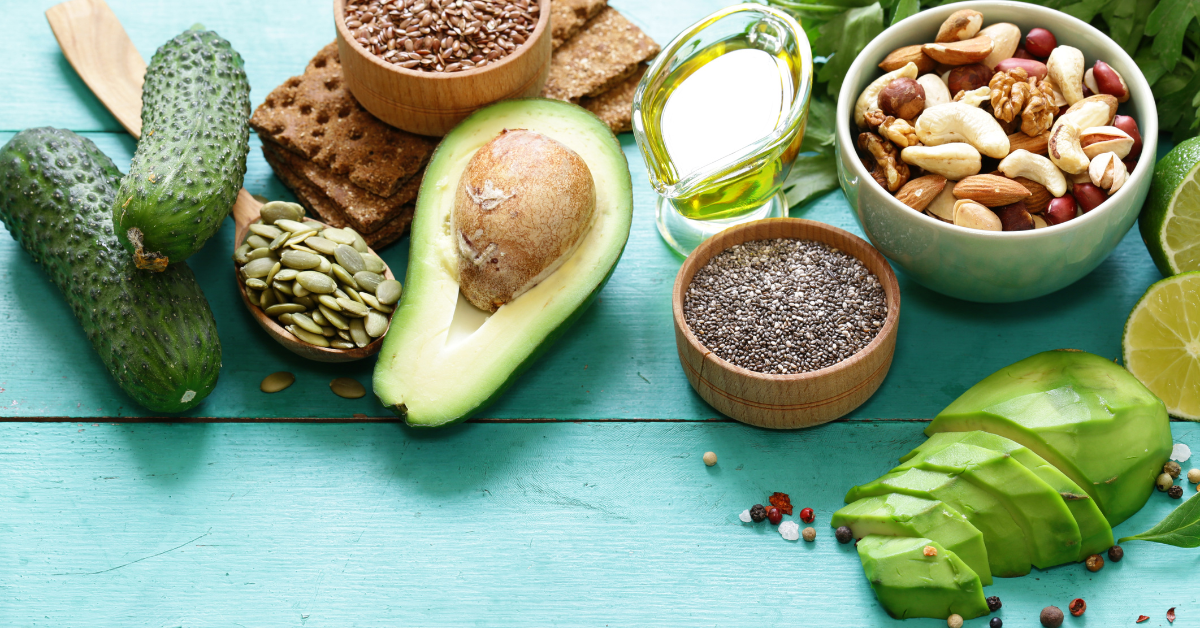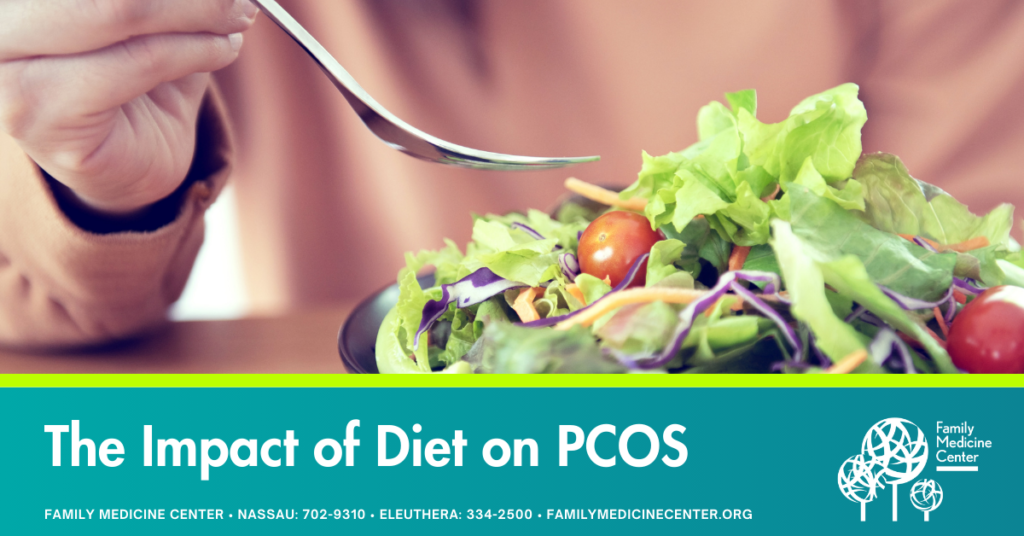Did you know? The foods you eat can have a significant impact on your PCOS symptoms. Although the exact cause of PCOS is not known, it can be influenced by genetics and lifestyle factors, such as diet and exercise.
FYI: Polycystic Ovary Syndrome or PCOS is a hormonal disorder that affects the ovaries.

Here are some ways diet can affect PCOS:
Insulin Resistance: PCOS is often associated with insulin resistance. Consuming complex carbohydrates (whole grains, legumes) and reducing refined sugars can help regulate blood sugar levels and improve insulin sensitivity.
Weight Management: Maintaining a healthy weight is important for managing PCOS. A balanced diet with portion control can aid in weight management, as excess weight can exacerbate symptoms.
Inflammation: A diet rich in anti-inflammatory foods like fruits, vegetables, and omega-3 fatty acids (found in fish, flaxseeds) may help reduce inflammation associated with PCOS.

Glycemic Index: Foods with a low glycemic index (GI) are digested more slowly, preventing rapid spikes in blood sugar. Focus on low-GI foods like whole grains, nuts, and vegetables.
Fiber: High-fiber foods like oats, beans, and vegetables can help regulate hormones and improve digestive health, which may benefit PCOS symptoms.
Dairy and Calcium: Some women with PCOS find that reducing dairy intake or opting for alternatives can help manage hormonal imbalances.
Lean Proteins: Include lean protein sources like poultry, fish, tofu, and legumes to support muscle health and hormone balance.
Limit Processed Foods: Minimize processed foods, as they often contain added sugars, unhealthy fats, and artificial additives that can worsen symptoms.
Hydration: Staying well-hydrated is essential. Water can aid in hormone regulation and overall health.
Supplements: Some women with PCOS may benefit from supplements like inositol, which can help regulate insulin and hormone levels, but it’s essential to consult a healthcare provider before adding supplements to your diet.

Remember that PCOS can vary from person to person, so it’s crucial to work with a doctor or a nutritionist to create a personalized nutrition plan that suits your specific needs and symptoms.

